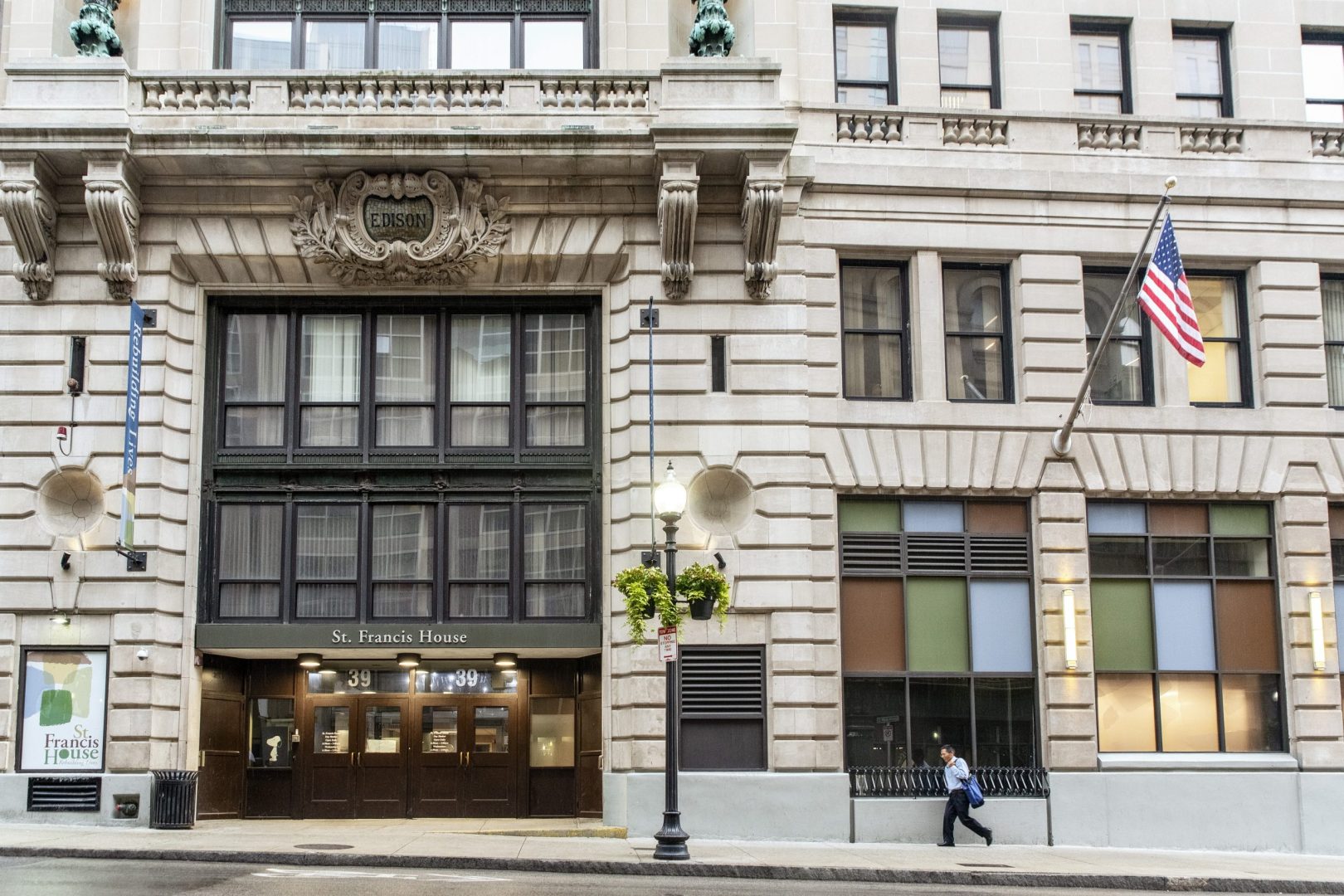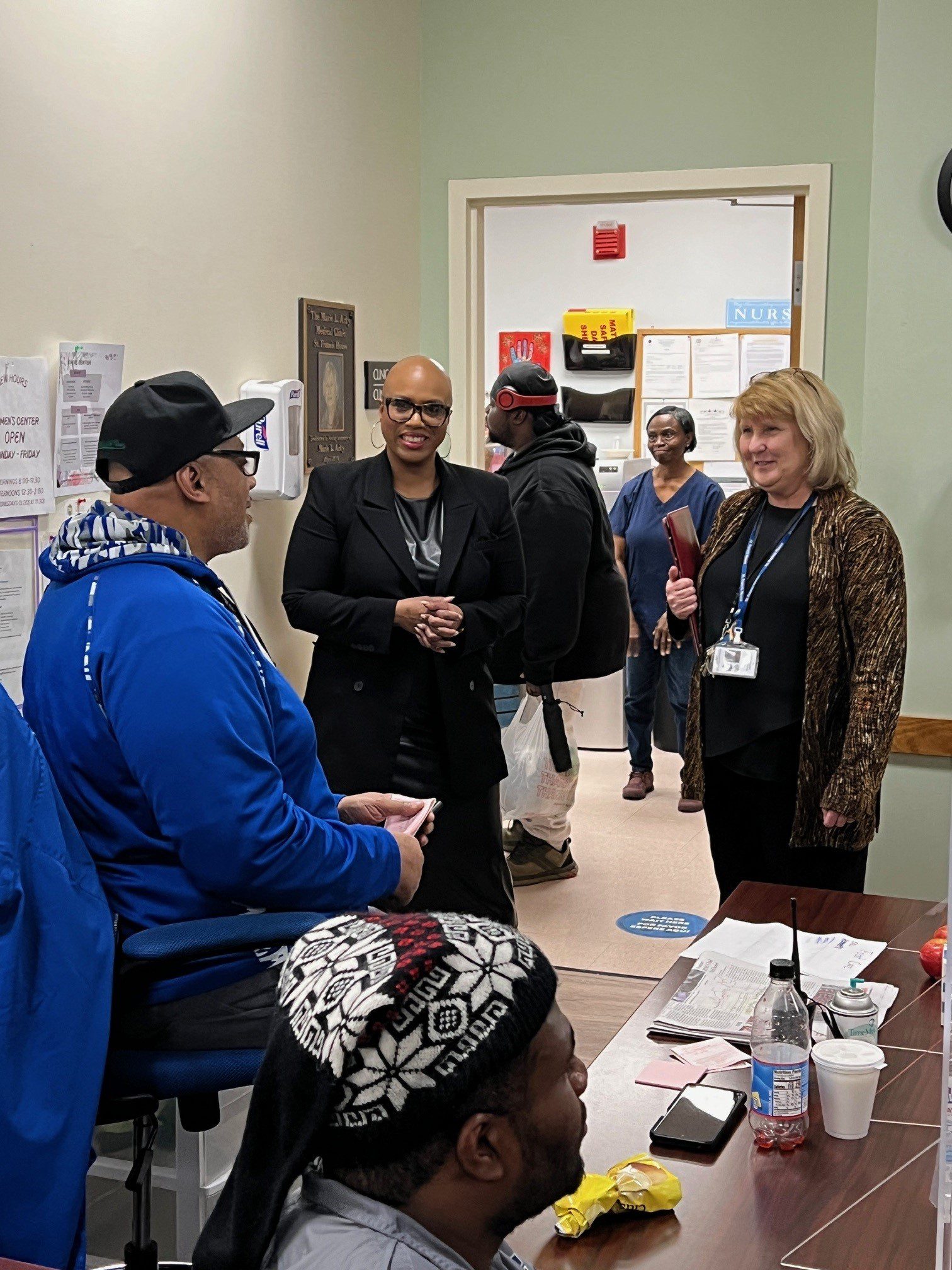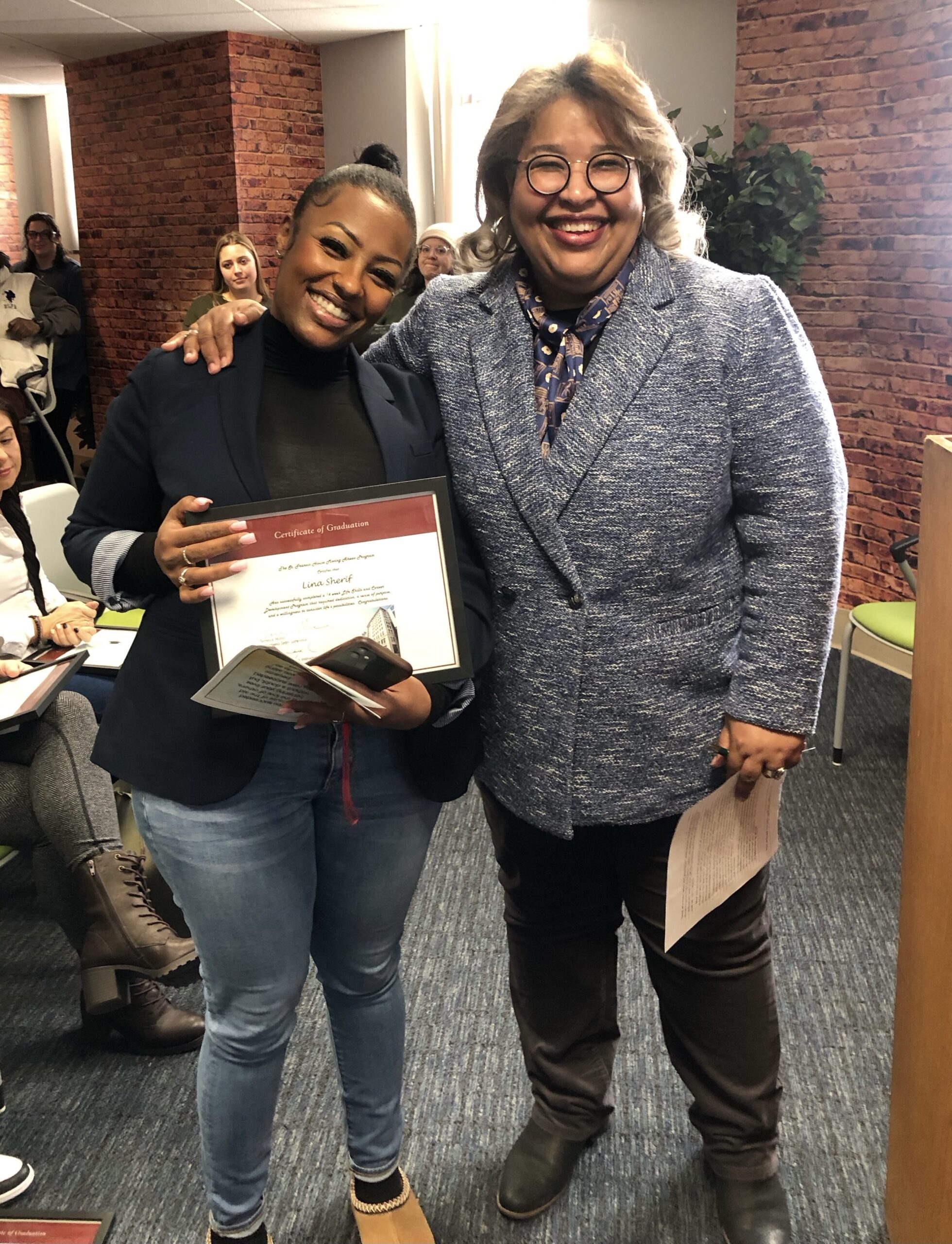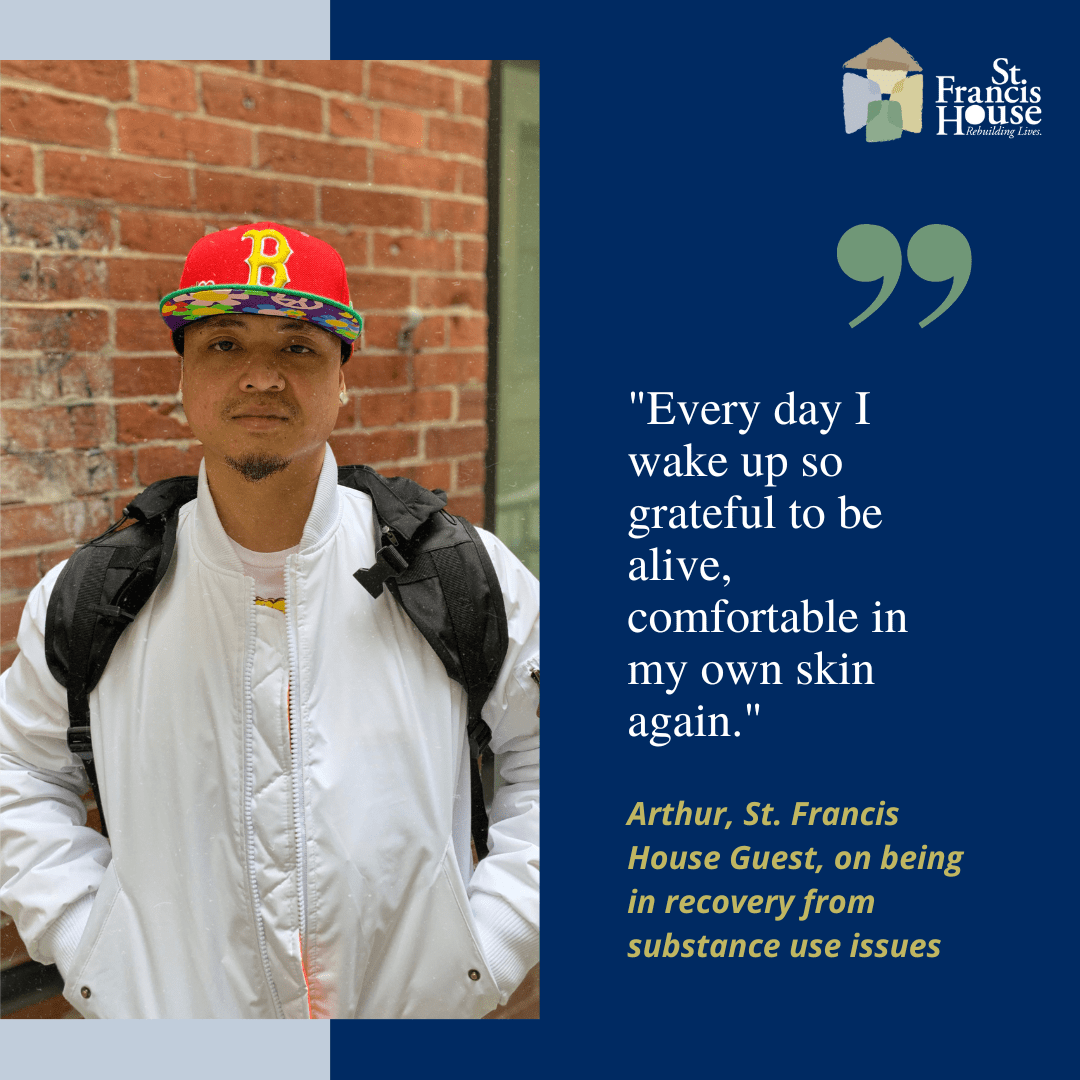The concept of harm reduction has been around for a long while. The philosophy behind the concept is simple. Rather than use a judgmental and punitive approach to harmful behaviors, those who follow this philosophy take a practical approach that keeps people from hurting themselves (and others) – and, hopefully, results in healthier behavior over time. One example is “designated driver” campaigns. Rather than militate against drinking altogether, this approach advises people that, if they are going to drink, they should make sure that someone else gets behind the wheel. Another example: providing clean needles for those using drugs.
At Saint Francis House, our case managers and CES (Community Engagement Services) personnel have traditionally (and unofficially) used harm reduction strategies when we work with our guests: respecting their right to self-determination, providing them with information on the resources available to them, and offering support for them with their struggles. We also get directly and explicitly involved as needed, e.g., administering NARCAN if one of our guests has overdosed, or calling for outside help if someone is in a severe mental health crisis.
Harm reduction specialists: out on the streets and within our walls
Although we’ve been doing harm reduction for as long as we’ve been around, with the recent hiring of two new harm reduction specialists, we’re now making it official. Verna and Shana, who came on board in May, will focus their efforts in two areas:
For part of each day, Verna and Shana will be a presence in the downtown areas where those in need (and likely substance users) gather. Boston Common. Downtown Crossing. Copley Square. Verna and Shana will not be going it alone. For safety, they’ll always go out as a team.
How will the pair operate? First, they’ll approach people and introduce themselves, perhaps offering them some small item they can use – a pair of socks, a bottle of water. Then Verna and Shana will start listening. Based on what they’re hearing, they’ll offer information on Saint Francis House and other services. They may hand out their business card so that someone has a contact at SFH. Or they may walk people back to SFH and introduce them to those who may be able to further help them. In fact, on their first day working outreach, Verna and Shana brought three individuals back to SFH to get acquainted.
The team has a lot of flexibility in terms of sizing up a situation and doing what needs to get done. In some cases, this may mean just providing a sympathetic ear. In other cases, it could mean finding someone looking to get into detox but scared to go on their own. When this happens, Verna and Shana may jump in a cab with them and make sure they get through the door at detox.
When they’re not on the streets, our harm reduction specialists will be meeting with guests within our walls: in the Dining Room, the Atrium, the Resource Center. Wherever our guests are, whenever our guests are ready, Verna and Shana will be looking for ways to engage and help them make connections.
What makes for a good harm reduction specialist?
Molly Dugan is Associate Director of Behavioral Health here at Saint Francis House. As such, she’s in charge of our new harm reduction program. “For this role, we need people who can quickly build rapport, who have empathy and the ability to connect. It’s also critical that they have lived experience. If someone is in recovery themselves, they’ll have a better understanding of what someone else is going through. Flexibility is key as well. Someone in this role needs to be able to quickly size up a situation and figure out what’s the best course of action. Being a harm recovery specialist is an independent gig. No one will be looking over their shoulders. So being able to act on your own is essential. With Verna and Shana, we’ve been fortunate to find two people who’ve checked every box.”
In their own words
Verna Johnson is no stranger to Saint Francis House. For a number of years, she was part of our CES team, working weekends. Shana Shea is a more recent member of the SFH family. We asked them to share their thoughts on our new harm reduction initiative. Like any good team, they collaborated on their answers:
“What we like most about this new position is that it’s a new position at SFH, which just goes to show that SFH is creating new avenues to reach our high risks guests struggling with substance abuse. It also shows that the world is starting to realize that there’s a need for harm reduction specialists.
We believe that this new position is extremely important for several reasons. For one, some of our high-risk guests need assistance but just don’t know where to start. For another, this new position shows our guests that we see their struggles and that we care enough to make a change. Our role also gives our guests who are struggling the support, understanding, guidance, care and – most importantly – a voice in their own substance abuse journey. And it allows us, as a new team, to meet our guests where they are as well as to learn from them.
We feel that we’ve been making an impact since Day One. We’ve assisted with wound care and a possible overdose, provided detox assistance and mental health guidance, and have helped with the basics, like making sure an individual has eaten or showered. Most importantly, we’re representing SFH and bridging a gap from the unknown to the services that we offer here. We already have a group of “regulars” who come and find us, whether it’s to just check-in & say hi, thank us for listening/being there, or to inform us of someone else in need. And that is what shows our mission and presence is making an impact.”
Our hope for the new harm reduction position is that it’s successful, and that it educates our fellow co-workers, community and guests. And we hope we can make a big enough impact to build our team and get more harm reduction specialists out and about.
Our new outreach initiative is just beginning. We’re confident that it will be a success and that it will further our mission of helping those in need rebuild their lives.



